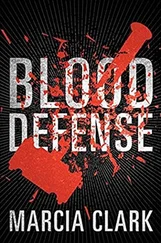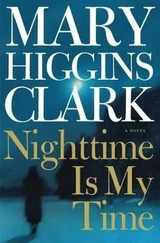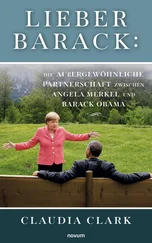She didn’t respond; she had her back to me and was exercising along to a tape in the VCR. A black man’s face filled the TV screen. It was bald and dotted with perspiration.
“Who’s this?” I said.
“Cher’s personal trainer.”
I watched from the door as the man in the black and purple wrestler’s singlet ran in place. “Jab, kick, knee punch!” he said. Behind him, standing in staggered formation, two beautiful women who had body fat only in the breasts and buttocks performed the same exercises. “Body blow, body blow, body blow!”
I watched Betty as she exercised, but no matter how hard I tried to picture her in that leotard I’d come to know so well in the early eighties, I found I’d developed a peculiar double vision. I couldn’t help but see the “Before” photograph superimposed over the “After.”
I looked past her to the box of cookies on top of the cable box. It was an American brand so popular in the Middle East that a supermarket chain in Abu Dhabi had asked us to replicate its flavor for its line of in-store generics.
“Did you try the others?” I said.
I’d left a Ziploc bag holding our first attempt from the lab in the cupboard downstairs, thinking I’d perform an impromptu taste panel one night after dinner.
Betty glanced to where I was looking, then swept the floor with one leg—“Finished them last night!”—and sprang up delivering a high kick in my direction. “You’ve got to stop bringing your work home with you!” She moved toward me, flinging sweat, a flurry of flying fists and feet: jab, kick, knee punch! “Promise! I can’t control myself!”
“Okay,” the black man continued, as the pace of the electronic music backing him accelerated. “It’s time for the two-minute hate! Remember to keep those knees high!”
Images of fat people flashed across the screen, much like they do on the evening news whenever there’s a report about the rising obesity rate. Everyone was shown from the torso down.
“Kick that fat, kick that fat! Uppercut! Uppercut!”
I was glad to hear the doorbell, even if I hadn’t changed into my house clothes yet. I rushed down the stairs to answer it and was met by two Mormon missionaries on the front step. They asked if I was interested in learning more about the writings of Joseph Smith, but I barely heard a word. They were both of them fat, the one with a button missing from the belly of his white shirt, the other so large he probably couldn’t see that his fly was open.
“Do you think we can use your phone?” the one said. “It just stopped on us.”
It was only then that I saw the black Buick sedan parked in front of the Ikeda house across the street. Steam rose up from under its popped hood.
“I thought you boys rode bicycles,” I said.
Their cheeks plumped up around their smiles, and then they were pinching at their ill-fitting grey trousers and trying to explain. The bikes had been stolen, and a member of the local ward who owned a Buick dealership had offered them the use of a loaner.
The one whose black name tag read ELDER PETERSON said, “I told you not to keep driving when that light started blinking.”
“We need to call the Auto Club,” the other told me.
I noticed one of the Ikedas standing at the window of their dining room, watching all of this through a part in the curtains. “I’ll just get the cordless,” I said.
Forty minutes later, our street was as busy as it had been all day. First, a moving truck pulled away from the driveway next door (the Wilsons had divorced earlier in the year, and neither had wanted to keep the house), and then, going in the other direction, the tow-truck carrying the Mormons. I waved from the end of the driveway, with the phone tucked into my back pocket, then turned for home, only to stop again when I saw Sarin pull up and park.
As she got out of her Bug and circled round to my daughter’s side of the car, I marveled at how different the two girls looked. In the last year, Priscilla had grown four inches in height and no less in the chest. Her steps were heavy and flat-footed. Even on a level surface, she walked as if she were falling down the stairs. Sarin, by comparison, was all straight lines and arrested dimensions, but even so she was somehow infinitely more feminine and graceful. She sashayed. She threw out her narrow hips as she walked and answered them with a rhythmic bounce of her shoulders. She dressed like a girl, too — wore studs in her ears and rings on her fingers, and coordinated her make-up with the scarf she wound round through her hair. If her politics and California cooking were going to rub off on Priscilla, I hoped her low heels might eventually catch on as well.
“You’re late,” I said.
“We got hung up at McDonald’s.”
“Ah! Finally gave up on this vegan farce, then, did you?”
Priscilla stopped midway up the lawn and waited for me to catch up. “We were interviewing people at the drive-through.”
“For your think-piece?”
She nodded, asking again if I’d ordered the Albanian report.
“Of course,” I said. And it was true: I’d dropped a money order in the mail that afternoon.
Priscilla continued for the door. “Why were you out here in the first place? Were you waiting for me?”
I shook my head, telling her about the missionaries. “They broke down and needed a tow.”
Priscilla stopped on the front step. “Did you invite them in?”
The expression on my face made the answer to this question perfectly clear.
“This is so like him.” Priscilla spoke to her friend as if I weren’t there. “Last month it was the Jehovah’s Witnesses.”
“They have great buffets,” Sarin said.
“He wouldn’t even accept their literature.”
“My dad’s a Rosicrucian,” Sarin told me.
“You don’t say.”
“What am I supposed to do?” Priscilla continued. “Just wake up one morning and decide to become a Hindu?”
“That would kill your mother.”
“I’m serious.”
“Well, look around you then. Take the Ikedas.” I pointed. “They’re Southern Baptists, aren’t they? And Jon and Ken next door”—both associate professors at the nearby university—“they go in for something Eastern, I believe. Knock on their door, you’ll smell the incense.”
Sarin headed inside, whispering about a need “to go.”
“They don’t have bathrooms at McDonald’s?”
“She’s principled. She wouldn’t pee there if you paid her.”
I followed my daughter inside, telling her then that if she did feel the need to follow a religious impulse, I hoped she’d at least have the good sense to stay away from the ben Israels. They were the black family three doors down, always dressed in white. “Lost Tribe of Judah — lost for a reason, if you ask me. Did you know their church has a PO box in Chicago and a leader in the federal penitentiary in Joliet?”
As we turned into the kitchen, Betty came down the stairs, red in the face and short of breath. “Has everyone already eaten?” she asked.
I returned the phone to its cradle on the wall, telling her Priscilla had stopped at McDonald’s.
“I thought you hated McDonald’s.”
Our daughter was crouched down before the crisper drawer, rummaging around for something to eat. “We were interviewing people!”
Betty reached in over her for a diet cola, then turned back toward the hallway at the sound of Sarin’s voice. “I’ll call you,” she said to Priscilla, before heading out the door.
Betty exited to the garage then, saying she’d investigate the freezer, while Priscilla rose from the crisper drawer, holding a cucumber that had a plastic seam running down its side.
“So what were they like anyway?” she said.
Читать дальше












